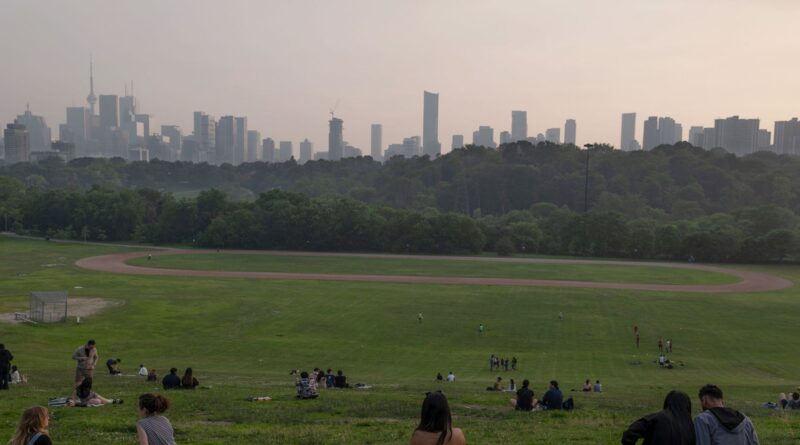Air Pollution Is Ruining Your Skin
In June last year, a series of devastating wildfires tore through the Canadian province of Quebec, sending huge plumes of acrid smoke drifting across North America. Three hundred miles away in Boston, dermatologist Shadi Kourosh noticed something strange. “We had an unusual spike in dermatology visits,” says Kourosh, who is director of community health in the dermatology department at Massachusetts General Hospital and an assistant professor at Harvard Medical School.
Patients whose eczema flare-ups or itchy skin were normally only a problem in the winter were coming to her clinic at the height of summer. Like New York, Detroit, and other cities in the northern United States, Boston was experiencing higher than average air pollution as a result of the wildfires, and Kourosh suspected this might be having an impact on people’s skin.
To prove it, her team pulled five years of data from the US Environmental Protection Agency about the levels of airborne particulate matter and carbon monoxide in Boston, and matched it to anonymized patient records from the Mass General Brigham hospital system, the largest hospital group in Massachusetts.
They found a correlation between levels of air pollution and hospital visits for atopic dermatitis, the most common form of eczema. In June 2022, in Boston, carbon monoxide levels were at less than 0.2 parts per million, and the number of clinic visits for atopic dermatitis and eczema was under 20. In June 2023, during the wildfires, carbon monoxide levels were three times higher, at 0.6 parts per million, and the number of dermatology visits had increased to 160.
It’s not just acute events like wildfires that can impact the skin—day-to-day pollution from vehicles and industry also has an effect. In 2021, scientists in China found a link between higher baseline levels of air pollution and conditions like eczema in children in Guangzhou.
“A lot of these components of airborne pollution are irritants to the skin,” Kourosh explains. On contact, they can cause inflammation and cause the skin to age faster. “People who have eczema have a weakened, more vulnerable skin barrier, and so the pollutants penetrate deeper and trigger the immune system,” she says. This leads to flare-ups and explains the spike in visits she noticed in her clinic.
Air pollution has been linked to a host of health issues, ranging from asthma and lung cancer to diabetes and obesity. In that context, focusing on the skin might seem trivial. But it’s hugely important. More than 99 percent of the world’s population live in places where levels of pollution exceed World Health Organization guidelines, and severe skin conditions like atopic dermatitis can be intensely debilitating. “Yes, it doesn’t kill anyone, but if you have it severely, you have a horrendous quality of life,” says Carsten Flohr of the British Association of Dermatologists. “The sleep disturbance, especially if you have eczema from early life, is a form of torture. You can never establish the proper body rhythm, and that has got all sorts of other implications—anxiety, depression, social withdrawal.”




